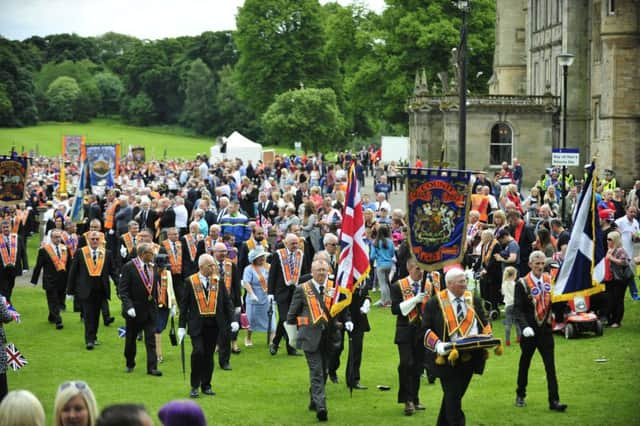Police say they need more powers to tackle public disorder


The independent study into parades has urged ministers to consider changing the laws on public assembly to give police more power to tackle protesters who overstep the mark.
The report compiled by Dr Michael Rosie, a senior lecturer in sociology at Edinburgh University, is also calling on police and councils to work with the organisers of Orange Order and Irish Republican marches to ensure events are trouble free.
Advertisement
Hide AdAdvertisement
Hide AdAs Scots law stands at the moment, groups of up to 20 people involved in a demonstration can only be dealt with through common law, such as breach of the peace charges.
Changing the definition of a public assembly from its current level or 20 or more people to two or more people would bring Scotland into line with England and Wales.
It would also enable smaller groups to be deal with under statutory rather than common law.
Dr Rosie’s report said police were “limited by the legislative definition of a public assembly under Section 16 of the Act: an assembly of 20 or more persons in a public place which is wholly or partly open to the air. In England & Wales this definition was amended to two or more persons some years ago.
“Senior police officers feel a similar amendment would be useful in Scotland. At present an assembly of, say, 15 people can only be addressed through common law (i.e. breach of the peace) – senior officers believe that statutory powers are always better and offer more consistent and transparent police decision making.”
The report went to to suggest that the Scottish Government should consider bringing Scotland into line with England and Wales, saying it would have a “positive impact” on Police Scotland’s powers to deal with static demonstrations where public order is threatened.
A spokesman for Police Scotland said the proposal was a matter for the Scottish Government. The government said it would “consult and consider” the proposal along with the other findings of the report.
The report found that despite the controversial nature of many marches and parades they were “for the most part” well-organised and professionally-run. But there was no room for complacency.